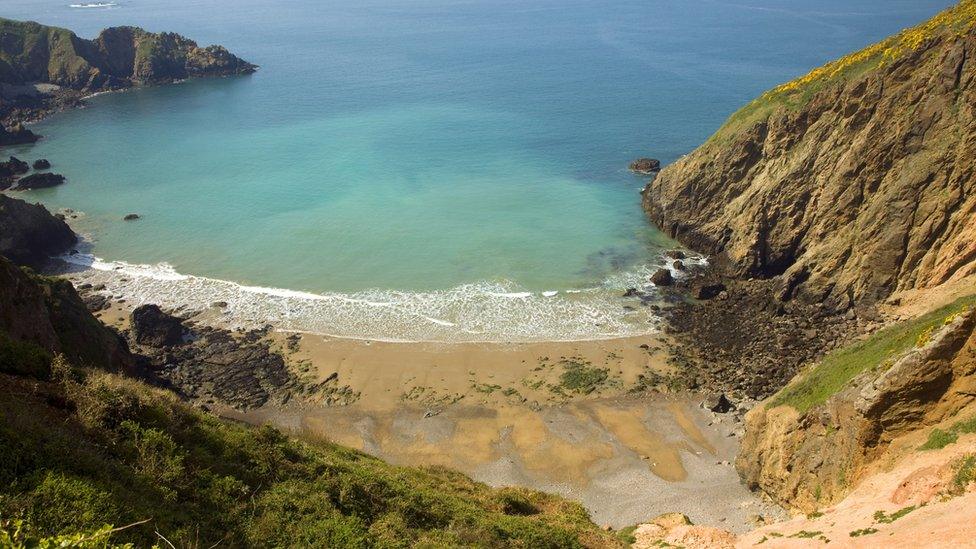Sark: Ten years of democracy, but is it working?
- Published
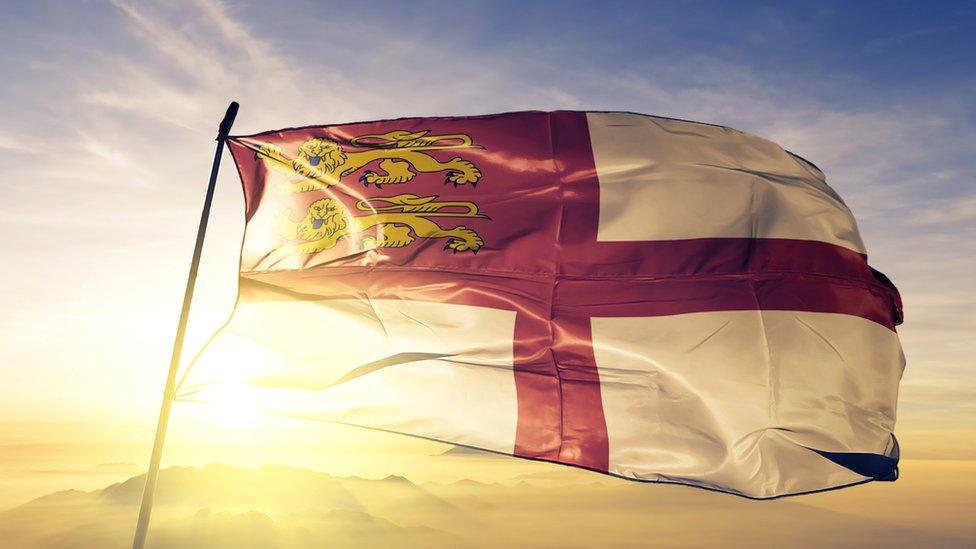
Some members of Sark's government are descended from 16th Century settlers
Sark is famously car-free, with bicycles and tractors the favoured form of transport on the small Channel Island. Until 10 years ago, when residents took to the polls for the first time in a general election, it was also democracy-free. But is the system working?
As islanders stockpiled candles and matches with just a day to go before the sole electricity provider was about to turn off the lights, to the casual observer the answer would appear to be "no".
Sark's 500 residents might have escaped a blackout for now, but the electricity dispute still needs to be resolved by the island's government, Chief Pleas, which last week saw seven newcomers voted on to the island's unpaid 18-person parliament.
Sark - with three pubs, two volunteer policemen and one school - has a unique relationship with the British Crown, with a representative of the UK's Ministry of Justice, currently Lord Keen of Elie, responsible for ensuring good governance.
In a leaked letter seen by the BBC, he told island politicians to address what he described as a "serious state of affairs" regarding the government of the island. Lord Keen raised concerns over the skills, knowledge and level of experience in Chief Pleas, as well as a lack of both transparency and contested elections.
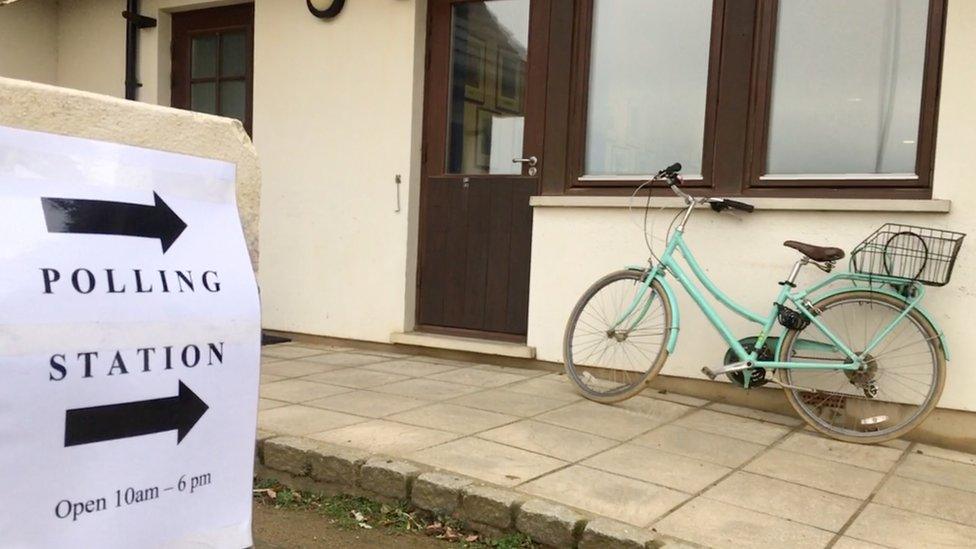
Voters often travel by bicycle to Sark's one polling station
Sark's oldest parliamentarian, Lt Col Reg Guille, 76, saw the peer's letter as a veiled threat to the island's independence.
"I've done my time; I would like to retire," he said the day after last week's election.
"But I am not prepared to see my island home - because my family has been here since 1565 - thrown to the wolves and become a satellite of Guernsey.
"Having stood up to the mark now, I believe the community must continue to pull together and make sure that there is never an uncontested election again."
The last two general elections, in 2016 and 2014, were hardly examples of robust democracy as all Chief Pleas seats were uncontested, although in last week's vote Sarkees were at least offered a choice of candidates at the ballot box.
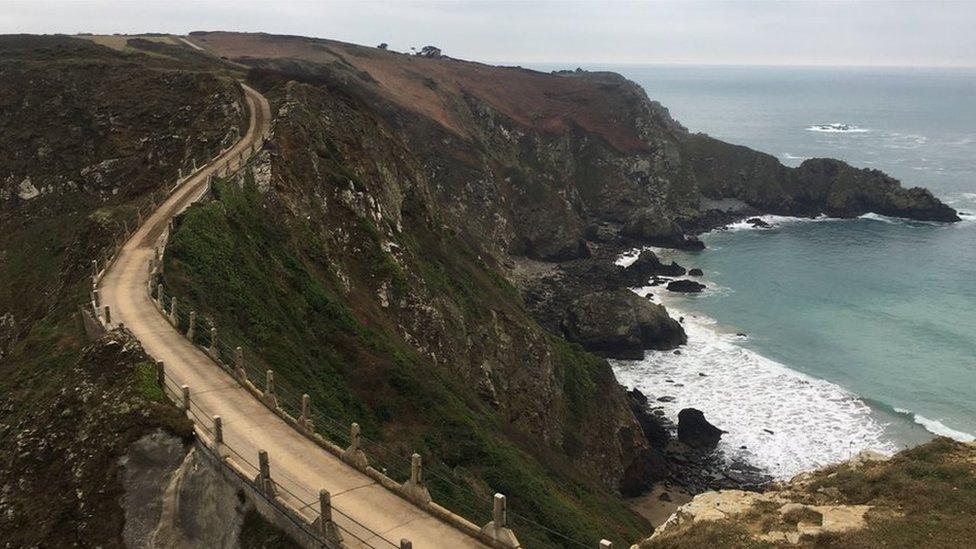
The island of Sark lies between Guernsey and Jersey, off the coast of Normandy
Lt Col Guille, who has another two years before his term in Chief Pleas ends, insists the island's government is working hard to address the challenges identified by Lord Keen, including replacing the island's main civil servant and negotiating a "fair price" to buy the island's electricity provider.
The retired British army soldier is a frequent target of the Sark Newspaper, which has dubbed him an unelected "chief enforcer", and regularly questions the levels of transparency and competence in the island's government.
"It's total rubbish," he said.
"The people who have been not standing for election have been willing to see a few people carrying the burden of keeping this island jurisdiction going.
"The burden has got increasingly more difficult because we have dropped from 28 to 24, and now we're down to 18."
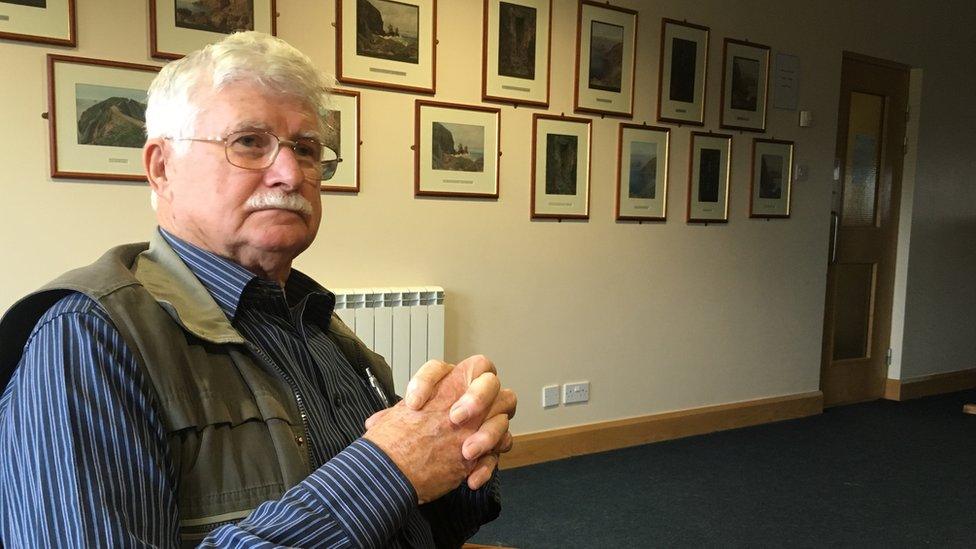
Reg Guille's family were among Sark's original settlers in 1565 - he hopes his descendents will still be running the island in another 450 years

Sark, the UK and democracy
Sark's allegiance to the British Crown began in 1565, when a Jersey resident became the island's seigneur - granted Sark as a fief by Queen Elizabeth
The island was settled by 40 of his subjects, who were each leased parcels of land, known as tenements
Until 2008, it was these landowners along with 12 elected deputies, the seigneur, and chief judge who formed the island's parliament
Sark is a separate jurisdiction within the Bailiwick of Guernsey, a larger neighbouring island and British Crown Dependency
As such, Sark is not part of the UK, but a self-governing dependency of the Crown, today with its own elected parliament, court, taxation and legal system
It is, however, tied to Guernsey, whose courts deal with more serious matters, and draft laws for approval in Sark's parliament, Chief Pleas
In 2008, following outside pressure, the island introduced an assembly consisting of 28 elected members
Elections currently take place every two years, with half of the now 18-person Chief Pleas up for re-election

The Sark Newspaper is edited by island resident Kevin Delaney, the head of the Barclay brothers-owned Sark Estate Management.
While the publication and Lt Col Guille agree the island needs to defend any threats to its independence, they differ in their view of Sark's 2008 Reform Law, which paved the way for the island's first fully democratic election in December of that year.
In an edition earlier this month, the paper described the law as "flawed", placing the blame directly on Lt Col Guille as the "principal architect" of a system it says has allowed him and his allies to control the government.
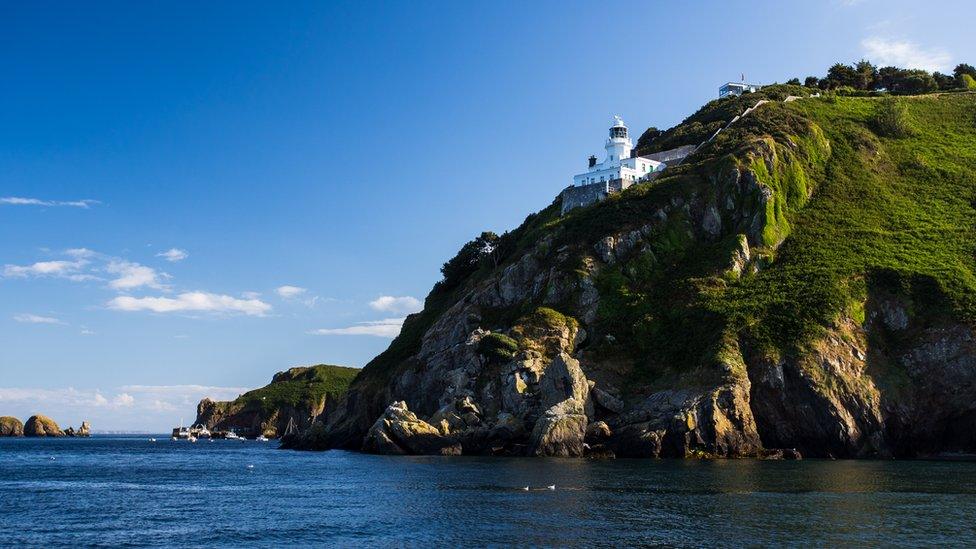
Tourism is the main driver of Sark's economy, with 95% of sea passengers travelling to the island between March and October
The Barclay brothers, Sir David and Sir Frederick, and their property company in the island, Sark Estate Management, are long-term opponents of Sark's political establishment.
The reclusive billionaire twins, who in 1993 bought the neighbouring island of Brecqhou from Sark, started a court challenge in 2008 in a bid to achieve greater reform to the island's government.
And although Sark did embrace democracy the same year, tensions have only increased since: as well as legal battles, several businesses owned by the brothers, including Sark's only vineyard and a number of hotels, have closed.
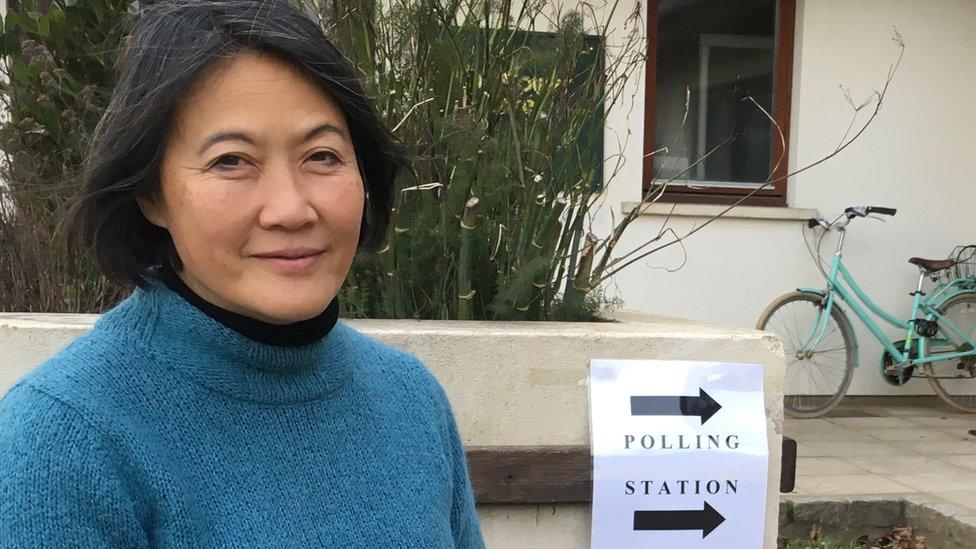
Kaye Char thinks it was a mistake for Sark to move away from its old feudal system of government
The factionalism apparent in Sark is evidence that democracy is not working, according to one islander, who was considering deliberately spoiling her ballot in protest on election day.
Originally from the US, Kaye Char has lived in Sark for 14 years and was once on the island's constitution committee under the old feudal system - something she feels should never have changed.
"Everyone knew exactly what they wanted, and everyone knew exactly why it worked," she said.
Democracy does not work in Sark, according to Ms Char, because of the small community being so interwoven with family ties, and the grudges that affect politicians' decision-making.
"In this island, all the things that make it not work well are exactly what we've got tonnes of," she said.
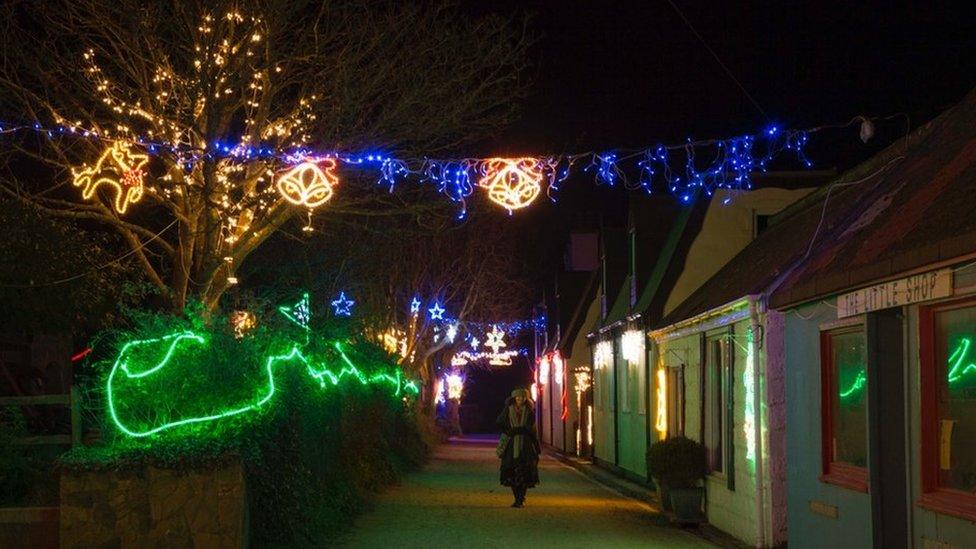
The lights are on, but is anyone home? Sark's population has decreased in recent years and a number of properties are empty
Such issues were also apparent to Howard Knight, an independent election observer who was in Sark for the island's uncontested 2014 election.
That poll attracted attention outside the island as exactly 16 candidates stood for the same number of seats, external, although Mr Knight found no evidence of corruption or a conspiracy, as some islanders had suggested.
"I was really concerned by the nature of political discourse on the island, which I thought was counter-productive," he said.
"People's perceptions about the important issues were overwhelmingly determined not by the merits or otherwise of the case, but by who was making the comment."
The former Labour Party employee spends much of his time advising young democracies and observing elections, the most recent being a referendum in Macedonia.
One of his overriding concerns in Sark was what he saw as conflicts of interest within the small island's government.
"You had individuals who may have been standing for election, which would give them public executive responsibility for making policies," he said.
"Then some of them were actually managers and administrators of those policies, and then some of the same people would be carrying out those policies as an employee or contractor - this is very unusual."
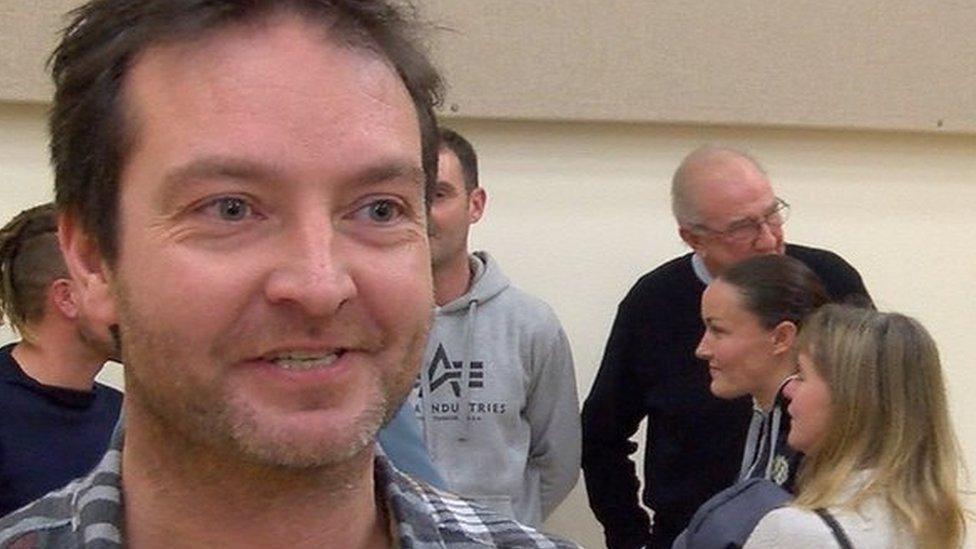
Newly elected politician John Guille said he would focus on rejuvenating the island's declining tourism sector
On 12 December, Sark was able to demonstrate to outsiders that it could at least hold a contested election.
Voters backed seven new candidates and re-elected two sitting conseillers, leaving six candidates unsuccessful.
And although only two existing politicians missed out on re-election, the injection of "young blood" into parliament has been welcomed by many on the island, including Lt Col Guille and Mr Delaney.
Further afield, many will be watching the new parliament's progress closely.
Candidates will have to grapple with some of the challenges identified by Lord Keen, but looming in the not-too-distant future are negotiations to nationalise the island's electricity supplier, after the threat of a switch-off.
Among the newcomers was third-placed John Guille, a 37-year-old naval architect, who, like Lt Col Reg Guille, is a descendent of Sark's original 16th Century settlers.
"My father and my grandfather served in Chief Pleas for many years," the conseiller-elect said.
"It's time for us to do our bit for the island, the younger generation."
Sark may have an almost half-new government, but during its decade-long existence as a democracy it has presided over a falling population and dwindling tourist numbers - an important source of income for the largely tax-free island.
The new faces in Chief Pleas suggest an appetite for change among the 260 voters who went to the polls last week, but it remains to be seen if the newcomers can convince the naysayers that democracy can work in a place like Sark.
- Published12 December 2018
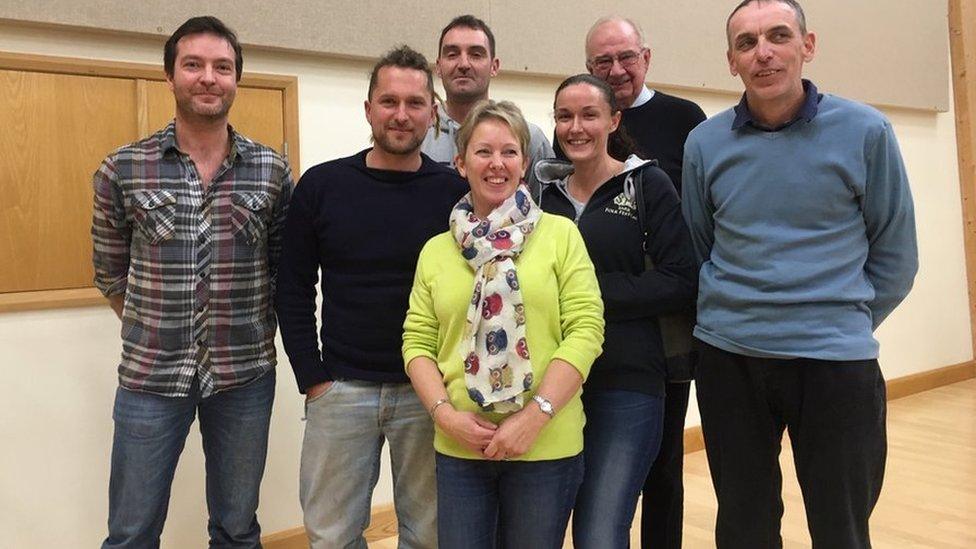
- Published15 December 2018

- Published30 November 2018
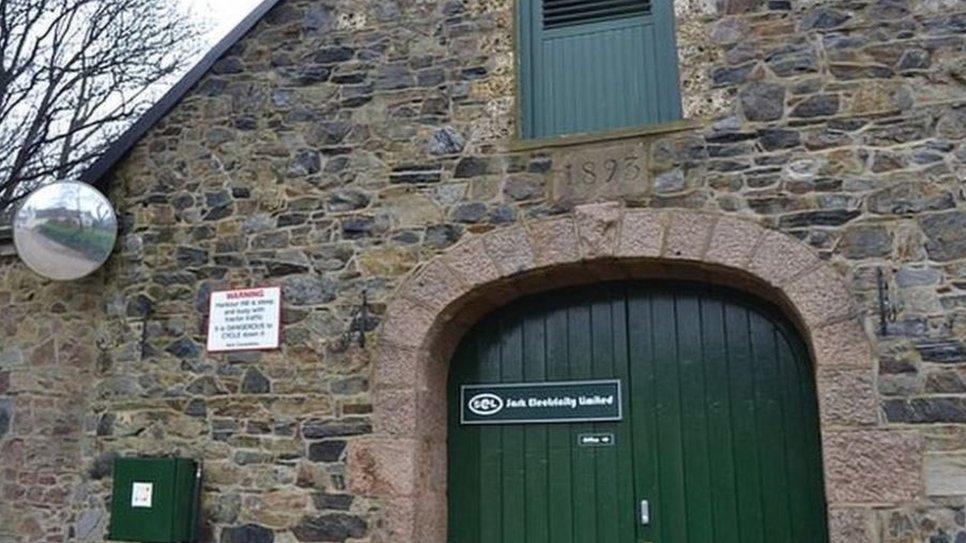
- Published26 November 2018
